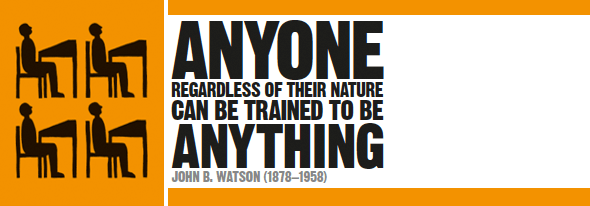
IN CONTEXT
Classical behaviorism
1890s German-born biologist Jacques Loeb (one of Watson’s professors) explains animal behavior in purely physical-chemical terms.
1890s The principle of classical conditioning is established by Ivan Pavlov using experiments on dogs.
1905 Edward Thorndike shows that animals learn through achieving successful outcomes from their behavior.
1932 Edward Tolman adds cognition into behaviorism in his theory of latent learning.
1950s Cognitive psychologists focus on understanding the mental processes that both lie behind and produce human behavior.
By the beginning of the 20th century, many psychologists had ...
Get The Psychology Book now with the O’Reilly learning platform.
O’Reilly members experience books, live events, courses curated by job role, and more from O’Reilly and nearly 200 top publishers.

